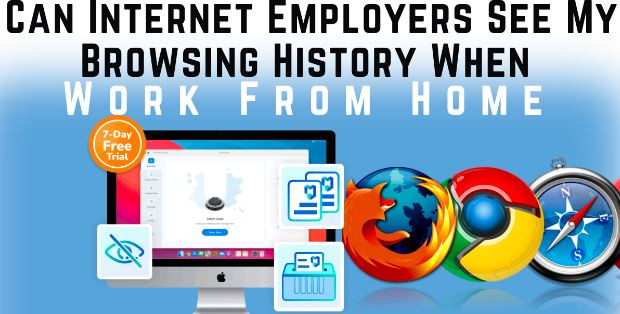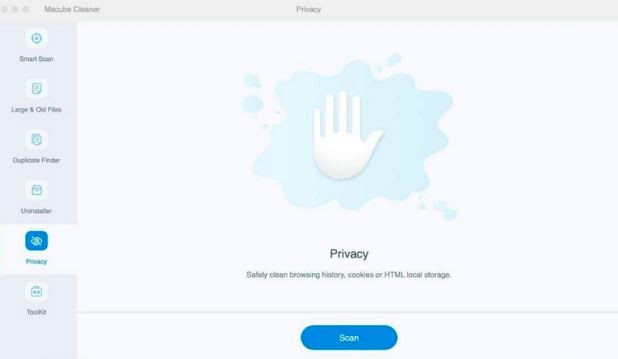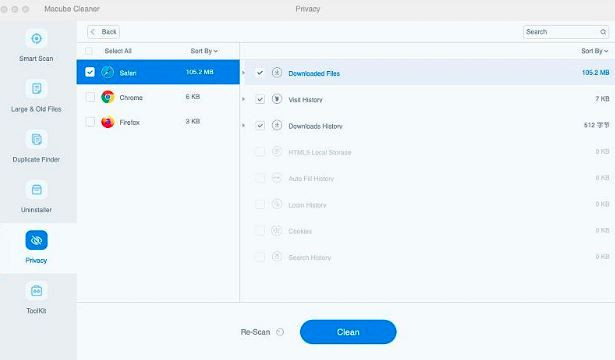
With the rise of remote work, many employees are concerned about their privacy while working from home. A common worry is whether a work from home employer can see my browsing history. As remote work becomes more prevalent, understanding the capabilities and limitations of employer monitoring tools is crucial for maintaining both productivity and personal privacy.
Employers have various tools at their disposal to monitor employee activities. These tools range from basic software that tracks log-in and log-out times to more sophisticated programs that can record keystrokes, take periodic screenshots, and track websites visited. The extent of monitoring largely depends on the employer’s policies and the specific software they use. However, even with these tools, employees often question, "Can a work from home internet employer see my browsing history?" There are legal and ethical boundaries that employers must respect in this regard.
It is important for employees to be aware of their rights and the extent of their employer's monitoring capabilities. In many regions, laws require employers to inform employees about any monitoring practices. Understanding these regulations can help employees protect their privacy and ensure a fair balance between work responsibilities and personal life. By staying informed, remote workers can navigate the complexities of digital monitoring, always mindful of the question, "Can a work from home internet employer see my browsing history?" This awareness helps maintain personal privacy while fulfilling professional duties.
How Can I Tell If My Employer Is Monitoring Me?
Figuring out if your employer is keeping tabs on your internet activity can be tricky, but there are several clues and strategies you can use to find out:
Review Company Policies
Start by going through your company's IT and internet usage policies. These documents usually detail the monitoring methods in place. Look for any references to monitoring software, logging activities, or surveillance practices.
Notice Performance Issues
Monitoring software can sometimes cause your computer or internet connection to slow down. If you experience a sudden drop in performance or frequent lags, it might be a sign that monitoring tools are active.
Look for Monitoring Software
Inspect your computer for any software you didn't install yourself. Common names for monitoring software include keyloggers, screen capture programs, and network monitoring tools. Security suites like Norton or McAfee might also have monitoring components.
Network Indicators
Keep an eye on your network activity. If your network light blinks more than usual, it could mean data is being sent to a monitoring server. You can also check your router for any unfamiliar connected devices.
Firewall and Antivirus Alerts
Some firewall and antivirus programs can detect and alert you to monitoring software. Make sure your security software is up to date and perform regular system scans.
How To Stop Your Employers From Seeing Your Browsing History?
Macube Cleaner is a powerful and versatile tool designed to optimize your Mac's performance and protect your privacy. Whether you're looking to free up storage space, manage your files more efficiently, or ensure that your browsing history remains confidential, Macube Cleaner offers a comprehensive suite of features to meet your needs. With its user-friendly interface and advanced algorithms, Macube Cleaner makes maintaining your Mac's health easier than ever.
Key Functions:
Effortless Junk Cleaning
Macube makes junk cleaning a breeze. With just a single click, it swiftly identifies and eliminates unnecessary files scattered across macOS system folders, iTunes, photos, mail archives, and web browsers. This comprehensive cleanup effectively frees up substantial storage space, ensuring your Mac operates at peak efficiency, preventing internet employers from seeing your browsing history cluttered with unnecessary files.

Duplicate File Finder
Macube’s advanced algorithms pinpoint duplicate files across your system, allowing you to reclaim valuable disk space effortlessly. By systematically identifying and removing redundant files, it optimizes storage utilization and enhances overall system performance, so your internet employers won't see your browsing history filled with redundant files.
Thorough App Uninstaller
Macube ensures a complete uninstallation process by eradicating applications and their associated remnants from your Mac. By eliminating leftover caches and preferences, it prevents sluggishness and maintains system integrity, keeping your browsing history clear and preventing internet employers from seeing old, unused app data.
Privacy Protection
Safeguard your digital footprint with Macube’s robust privacy protection features. Effortlessly clear browser caches, histories, cookies, and other sensitive data to preserve your online privacy and enhance browsing security. This makes sure internet employers won't see your browsing history and sensitive data.
Files Shredder
For ultimate data security, Macube includes a file shredder feature that permanently deletes sensitive files, rendering them unrecoverable. This ensures confidential information remains protected from unauthorized access, so internet employers cannot see your browsing history or any deleted sensitive information.
Extension Manager
Take control of your browsing experience with Macube’s extension manager. Effortlessly manage and disable unnecessary browser add-ons and plugins to optimize browser performance and streamline your online activities, ensuring that internet employers see a well-managed and efficient browsing history.
Similar Image Finder
Revolutionize photo management with Macube’s specialized image comparison tool. Utilizing cutting-edge algorithms, it identifies and categorizes similar images, empowering you to efficiently manage your photo library and reclaim storage space, ensuring your internet employers see an organized and optimized browsing history.
How To Use:
To keep your employees from seeing your browsing history, whether you're online or offline, just follow these steps using Macube Cleaner:
Step 1. Download, Install and Launch Macube Cleaner
- Open Macube Cleaner and look at the menu on the left. To get started, click on the "Privacy" option and then hit "Scan."
Step 2: Scan and Clear Browser History
The tool will give your Mac a thorough scan to find cache files, browsing history, and other private data. To proceed, just pick the browser you want to clear the history from and check the relevant boxes on the right.
Step 3: Clear Your Privacy
Finally, to get rid of your privacy settings, just click on the "Clean" option.

Additional Ways :
To prevent employers from seeing your browsing history, you can take several steps to enhance your privacy. Here are some effective methods:
Use a VPN (Virtual Private Network)
A VPN encrypts your internet connection and routes it through a remote server, hiding your browsing activities from your employer.
Enable Private Browsing Mode
Most web browsers have a private or incognito mode that doesn't save your browsing history, cookies, or form data.
Use Encrypted Browsing
Use HTTPS websites to ensure your data is encrypted. Tools like HTTPS Everywhere can help enforce this.
Clear Your Browsing History Regularly
Frequently clear your browser history, cookies, and cache to minimize what is stored locally on your device.
Use Alternative DNS Providers
Instead of using your ISP's DNS, use a privacy-focused DNS provider like Cloudflare (1.1.1.1) or Google DNS (8.8.8.8).
Employ Browser Extensions
Privacy-focused browser extensions such as uBlock Origin, Privacy Badger, or Ghostery can block trackers and enhance your online privacy.
Avoid Using Work Devices for Personal Browsing
Employers may monitor devices they own. Use your own devices for personal browsing to maintain privacy.
Disable or Limit Data Sharing
Review and adjust your browser and app settings to limit data sharing with third parties.
Use Secure Messaging Apps
For sensitive communication, use encrypted messaging apps like Signal or Telegram.
Educate Yourself on Phishing and Security Practices
Being aware of phishing schemes and other security threats can prevent inadvertent exposure of your browsing habits.
Conclusion:
In conclusion, the issue of whether internet employers can see your browsing history while working from home hinges on various factors such as company policies, monitoring software, and legal regulations. As remote work becomes increasingly prevalent, it's crucial for employees to understand their rights and responsibilities regarding digital privacy.
Employers have the capability to monitor activities on company-provided devices or through specific software and networks like VPNs. However, employees using personal devices typically have more privacy unless connected to monitored networks. Compliance with local data privacy laws, such as GDPR in the EU, sets important boundaries for monitoring practices, ensuring a balance between productivity oversight and personal privacy.
To safeguard against unwanted monitoring, employees can adopt strategies like using VPNs, enabling private browsing modes, and regularly clearing browsing history. These measures not only protect personal data but also promote a healthy boundary between professional duties and personal activities. By staying informed and proactive about digital privacy, remote workers can navigate the complexities of employer monitoring while preserving their privacy rights effectively.








